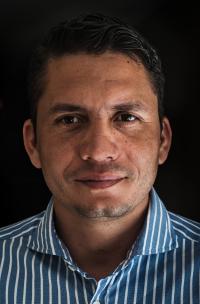My grandpa told me: There are three things which you cannot become ever - a fag, a thief, and a counterrevolutionary.’ With the last one, I betrayed him
Eliécer Ávila was born in 1985 in eastern Cuba in extremely humble conditions. Despite his background in a family that fully sympathized with the Cuban Revolution, during his adolescence, Eliécer began to question himself the disadvantages of the Communist regime. Since 2000, he studied at the University of Information Sciences and participated in FEU (Federation of University Students). Finally, in 2007 he expressed his doubts about the Cuban system during an assembly of the FEU, and since then he has been persecuted, threatened and oppressed by the regime. After graduating, he was expelled from the city of Havana and had to look for different jobs in the countryside. Nowadays, he can reside in the capital again, where he works as an independent computer teacher. He is one of the founders of the Somos+ (We’re+) political movement. Ávila is often referred as “one of the most dynamic figures of the new dissident generation”.
